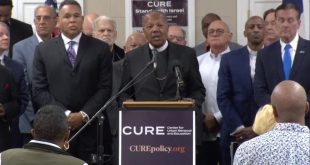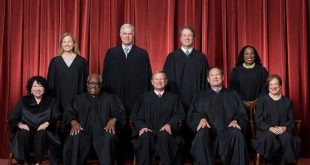Parents have the right to make the best educational choices for their children, whether their choice is a government, religious, private, or home school. Religious individuals and organizations have a right to be treated equally, with access to publicly available benefits.
Montana allows anyone who donates to certain organizations that award scholarships to selected students who attend private schools to receive a tax credit but bars the benefit for religious schools. Three residents tried to use the benefit for a religious school, but the state said no.
The Montana Supreme Court sided with the government, citing the state constitution’s Blaine Amendment. The “no-aid” provision bars any aid to a school controlled by a church, sect, or denomination.
The U.S. Supreme Court ruled (PDF) on Monday that the state constitution’s “no-aid” provision violates the Free Exercise Clause, which protects “religious observers against unequal treatment” and “against laws that impose special disabilities on the cases of religious status.” The court cited its decision in Trinity Lutheran Church of Columbia, Inc. v. Comer (2017).
A preschool operated by Trinity Lutheran Church in Columbia, Missouri, applied for a state grant available to resurface the playground to make it safer for children. Government and private schools and certain non-profit organizations can apply for the grant money. Because the state’s constitution bars the use of this money for religious schools, the government rejected Trinity’s application. The Supreme Court ruled that Missouri’s policy violated the Free Exercise Clause.
States that have Blaine Amendments, which discriminate against religious schools, argue that the discrimination is necessary under the Establishment Clause to maintain the so-called wall separating church and state.
As Thomas Jefferson wrote in his letter to the Danbury Baptist Association in 1802, the wall he envisioned was to ensure the association that the church was protected from the state, not the other way around. The founders didn’t intend for the state to use the Establishment Clause to discriminate against religious individuals and organizations.
Featured photo credit: By UpstateNYer – Own work, CC BY-SA 3.0, Link
 CURE News and Clergy Blog News and Commentary for Christians
CURE News and Clergy Blog News and Commentary for Christians




Hopefully these decisions will not allow the government from hijacking the teachings of the religious schools and inserting their leftists propaganda into the curriculum